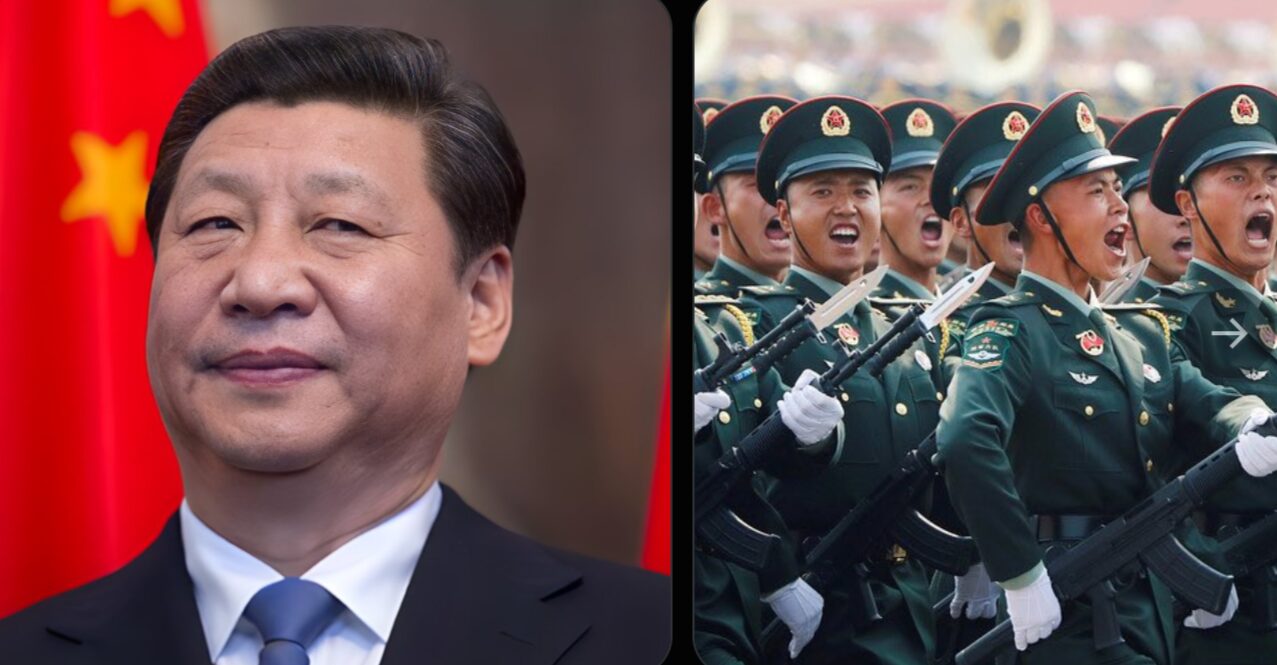CHINA has accused the US of conducting LONG-TERM SYSTEMATIC CYBER ATTACKS on China
In a bold move, China has accused the United States of carrying out long-term systematic cyber attacks targeting Chinese entities, escalating tensions between the two global powers. The Chinese government has claimed that the U.S. has been using cyber tactics to infiltrate critical infrastructure, steal sensitive data, and interfere in China’s technological advancements. These accusations come at a time when the relationship between China and the U.S. is already strained due to trade disputes, geopolitical rivalries, and disagreements over various international matters.
The allegation marks another chapter in the ongoing cyber conflict between the U.S. and China, both of which are suspected of engaging in cyber espionage to advance their national interests. While such accusations are not new, the timing and severity of China’s claims have raised eyebrows among international observers. As cyber warfare becomes an increasingly important aspect of modern geopolitics, these tensions could have significant implications for global security, technology industries, and international diplomatic relations.
The Accusations: Cyber Attacks Alleged by China
China’s government, through its state-controlled media and official statements, has accused the U.S. of conducting a series of systematic and prolonged cyber attacks against its government agencies, corporations, and private enterprises. According to Chinese officials, these attacks have targeted sensitive areas of China’s economy and security infrastructure, including government databases, technological innovations, and financial institutions.
The Chinese government has specifically pointed to the involvement of U.S. intelligence agencies, claiming that they have orchestrated these cyber attacks in a bid to weaken China’s global position. This includes allegations of hacking efforts aimed at stealing intellectual property, spying on Chinese leaders, and undermining China’s growing technological capabilities, particularly in areas such as artificial intelligence, 5G networks, and semiconductor production.
The most recent claims from China suggest that the cyber attacks are not isolated incidents but part of a broader strategy by the U.S. to curb China’s rise as a global technological superpower. While these accusations are difficult to independently verify, they highlight the growing concerns over the use of cyber tactics as a tool of statecraft and economic warfare.
Cyber Espionage: A Growing Concern for Global Security
The accusation of systematic cyber attacks is not an isolated issue. In recent years, cyber espionage has become a key area of concern for governments and organizations around the world. As nations increasingly rely on digital infrastructure and interconnected systems, the potential for cyber attacks to disrupt economies, spy on adversaries, or steal sensitive information has grown exponentially.
Both the U.S. and China are known to engage in cyber espionage, with each country accusing the other of using hacking and cyber tactics to infiltrate critical infrastructure. The U.S. has long accused China of cyber theft, particularly in relation to intellectual property and trade secrets. These accusations have focused on Chinese state-sponsored hacking groups believed to be responsible for stealing data from American companies and government agencies.
On the other hand, China has frequently accused the U.S. of launching cyber attacks, particularly those allegedly aimed at undermining China’s growing technological capabilities. The U.S. is thought to have conducted a range of cyber operations targeting Chinese networks, including both government and private sector entities. These cyber operations have been attributed to American intelligence agencies, such as the National Security Agency (NSA), and are often tied to efforts to gather intelligence on China’s military capabilities, economic plans, and technological advancements.
The expansion of cyber warfare presents new challenges for global security. Unlike traditional military operations, cyber attacks can be launched remotely, often leaving no clear traces of the perpetrator. This makes it increasingly difficult for nations to defend against and retaliate to cyber incursions, and it complicates efforts to establish international norms and regulations around cyber activity. As both the U.S. and China continue to develop their cyber warfare capabilities, the potential for a full-blown cyber conflict between the two countries remains a serious risk.
Implications for Global Technology Industries
The escalating cyber tensions between China and the U.S. have profound implications for the global technology landscape. Both nations are leaders in technology development, with China emerging as a dominant force in areas such as telecommunications, artificial intelligence, and digital manufacturing. The U.S., for its part, remains a global leader in tech innovation, with American companies continuing to drive advancements in software, hardware, and data analytics.
China’s accusations of cyber attacks from the U.S. could lead to a heightened sense of distrust within the global tech industry, particularly among companies that operate in both countries. This could result in increased regulatory scrutiny, tighter security protocols, and greater pressure on multinational corporations to navigate the delicate balance between the interests of both nations.
For example, Chinese technology companies like Huawei and ZTE have already faced significant challenges in the U.S. market, with accusations that their products may be used for espionage. The U.S. government has banned these companies from participating in the development of critical infrastructure, citing national security concerns. In response, China has called these actions part of a broader U.S. effort to stifle China’s technological rise.
On the flip side, U.S. tech companies operating in China, such as Apple, Microsoft, and Google, face stringent data laws and regulations that require them to cooperate with Chinese authorities in ways that many Western observers deem problematic. The growing mistrust between the two nations could lead to a further decoupling of their respective technology industries, with each country looking to secure its digital infrastructure against perceived threats from the other.
Diplomatic Tensions and the Risk of Escalation
The ongoing cyber conflict between the U.S. and China is a reflection of broader diplomatic and geopolitical tensions between the two countries. In recent years, U.S.-China relations have become increasingly contentious, with disputes over trade, human rights, the South China Sea, Taiwan, and Hong Kong. Cyber espionage is just one more tool in the arsenal of both nations as they seek to advance their interests on the global stage.
China’s accusations against the U.S. over cyber attacks are likely to further strain these relations, and there is growing concern that the cyber domain could become the next flashpoint in the broader U.S.-China rivalry. While both nations have engaged in cyber operations in the past, the accusations and counter-accusations are now reaching a level that risks serious diplomatic fallout.
The U.S. government has yet to formally respond to China’s recent claims, but it is expected that Washington will deny the allegations, as it has done in the past. However, the ongoing cyber tensions could have broader implications for international relations, especially as other countries may be forced to take sides or navigate their own security concerns regarding digital warfare.
In addition to diplomatic tensions, there are concerns about the potential for a more direct confrontation between the two powers in the cyber domain. Both the U.S. and China have developed sophisticated cyber capabilities that could be used to disrupt critical infrastructure, launch disinformation campaigns, or even target military systems. This heightens the risk of unintended escalation, with both sides being pushed into a cyber arms race that could destabilize global security.
Moving Forward: A Call for International Cooperation
As the accusations between China and the U.S. intensify, there is a growing need for international cooperation on cyber security. The absence of clear global norms and rules regarding cyber warfare makes it difficult to manage rising tensions and prevent conflicts in the digital space. Cybersecurity experts and diplomats alike are calling for greater transparency, dialogue, and collaboration to address the growing threat of cyber warfare and espionage.
Countries, particularly the U.S. and China, must recognize the potential for devastating consequences in the cyber domain. Whether through economic disruption, espionage, or military implications, cyber attacks are an increasingly critical issue for global stability. It is essential for both nations to consider the broader implications of their actions and to seek diplomatic solutions that prioritize cooperation over conflict.
As the cyber world becomes more integrated into everyday life and economic systems, it will be vital for all nations to engage in a collective effort to establish rules for cyberspace that can prevent future escalations and encourage responsible behavior in the digital realm. The rise of cyber warfare presents both opportunities and risks, and the way forward will require careful consideration, mutual understanding, and a commitment to peaceful engagement in the virtual domain.

















Post Comment